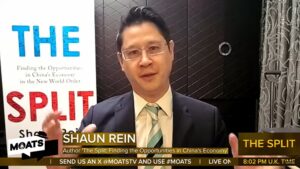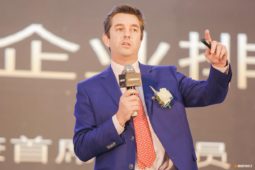
One-third of global wealth will come from China in the future, says Shanghai-based business analyst Shaun Rein in a debate with George Galloway on this latest book, r. One of the achievements of current leader Xi Jinping is that he has been able to diminish the gap between rich and poor Chinese, says Rein. China used to be an unfair society, focusing on the rich, but Xi focused on the poor and middle-class Chinese, a group that counts for 400 million people and might grow to 800 million.
Shaun Rein is a speaker at the China Speakers Bureau. Would you like him at your meeting or conference? Contact us or fill out our speakers’ request form.
Are you looking for more political analysts at the China Speakers Bureau? Do check out this list.










